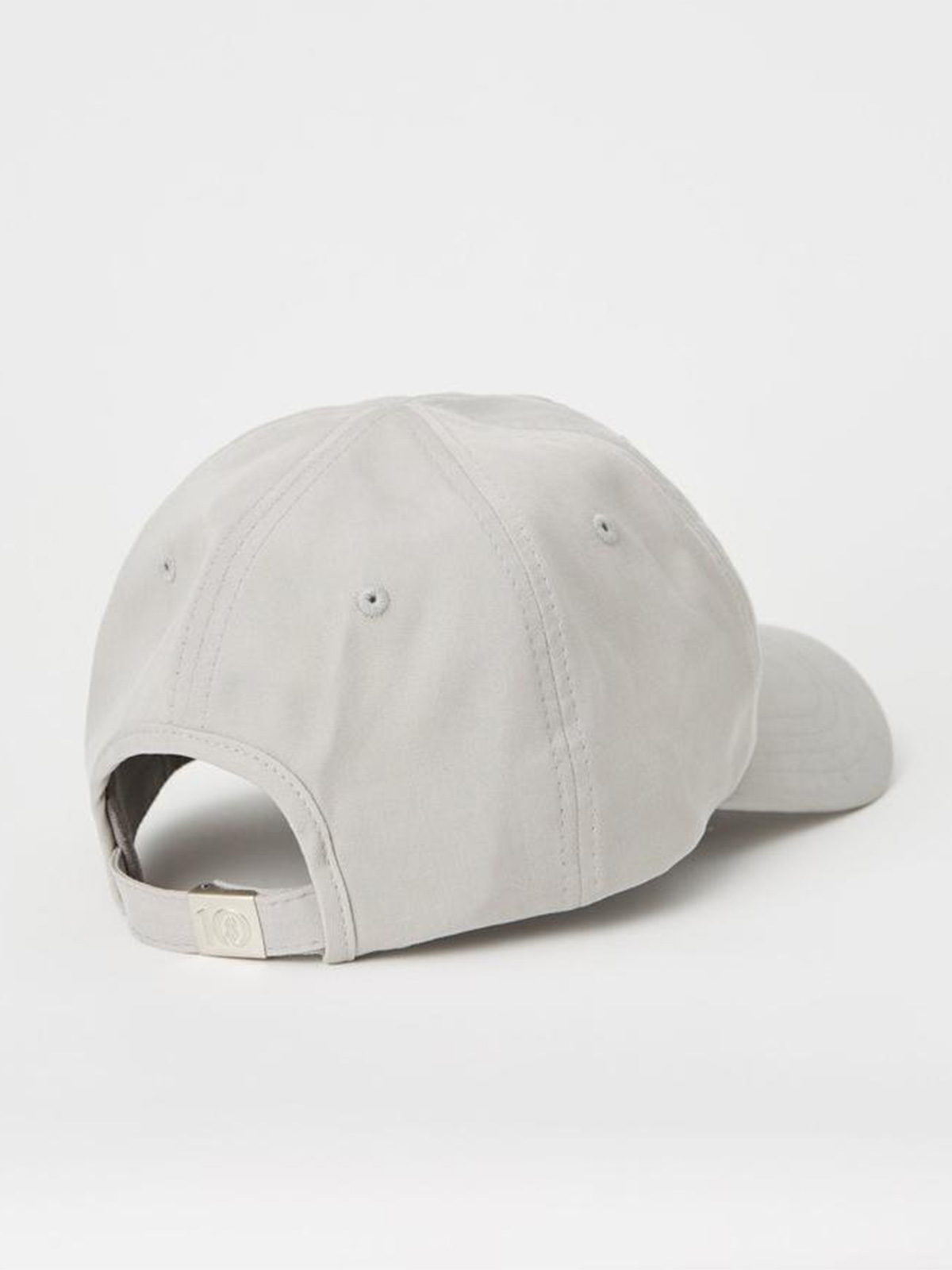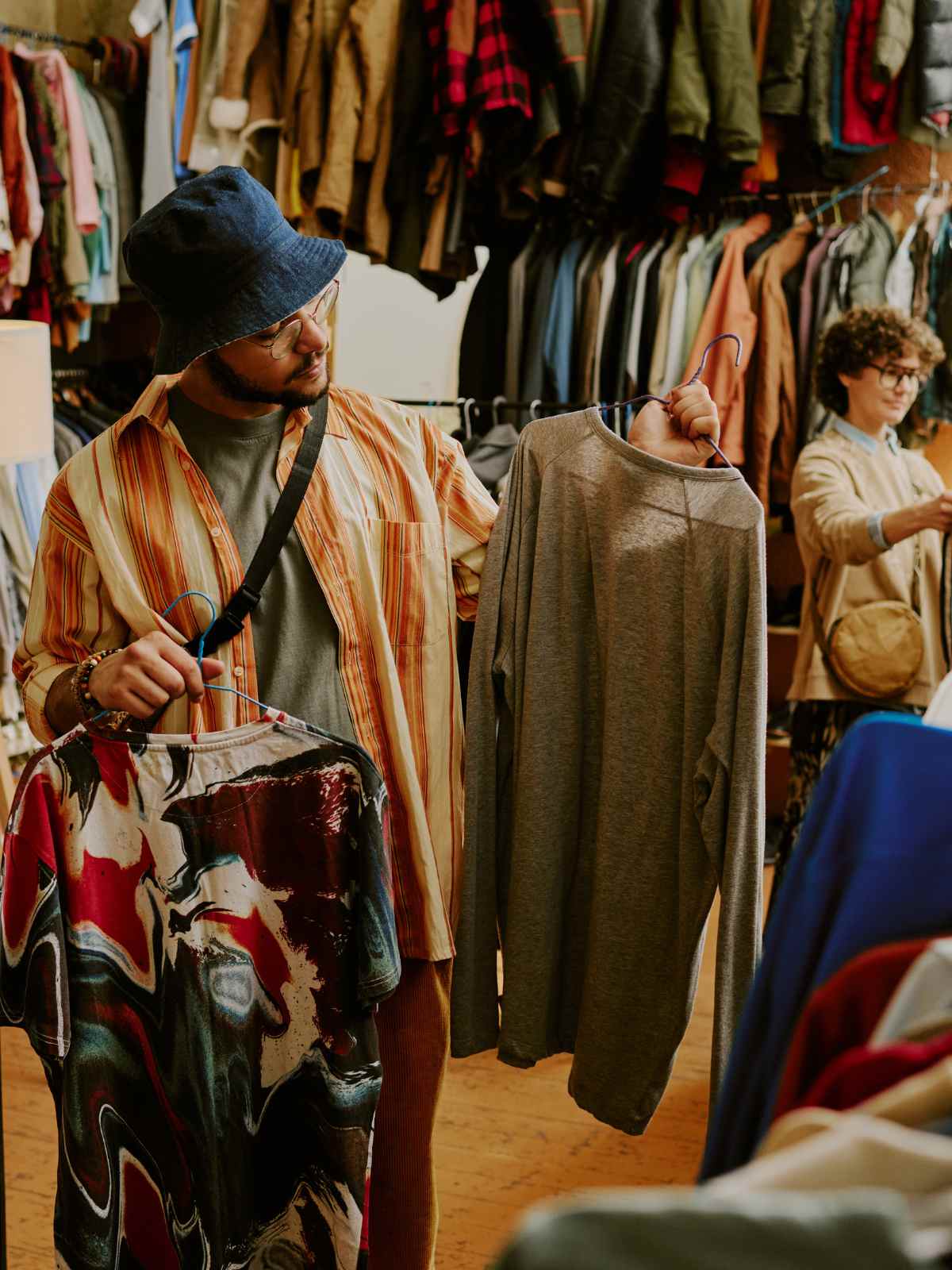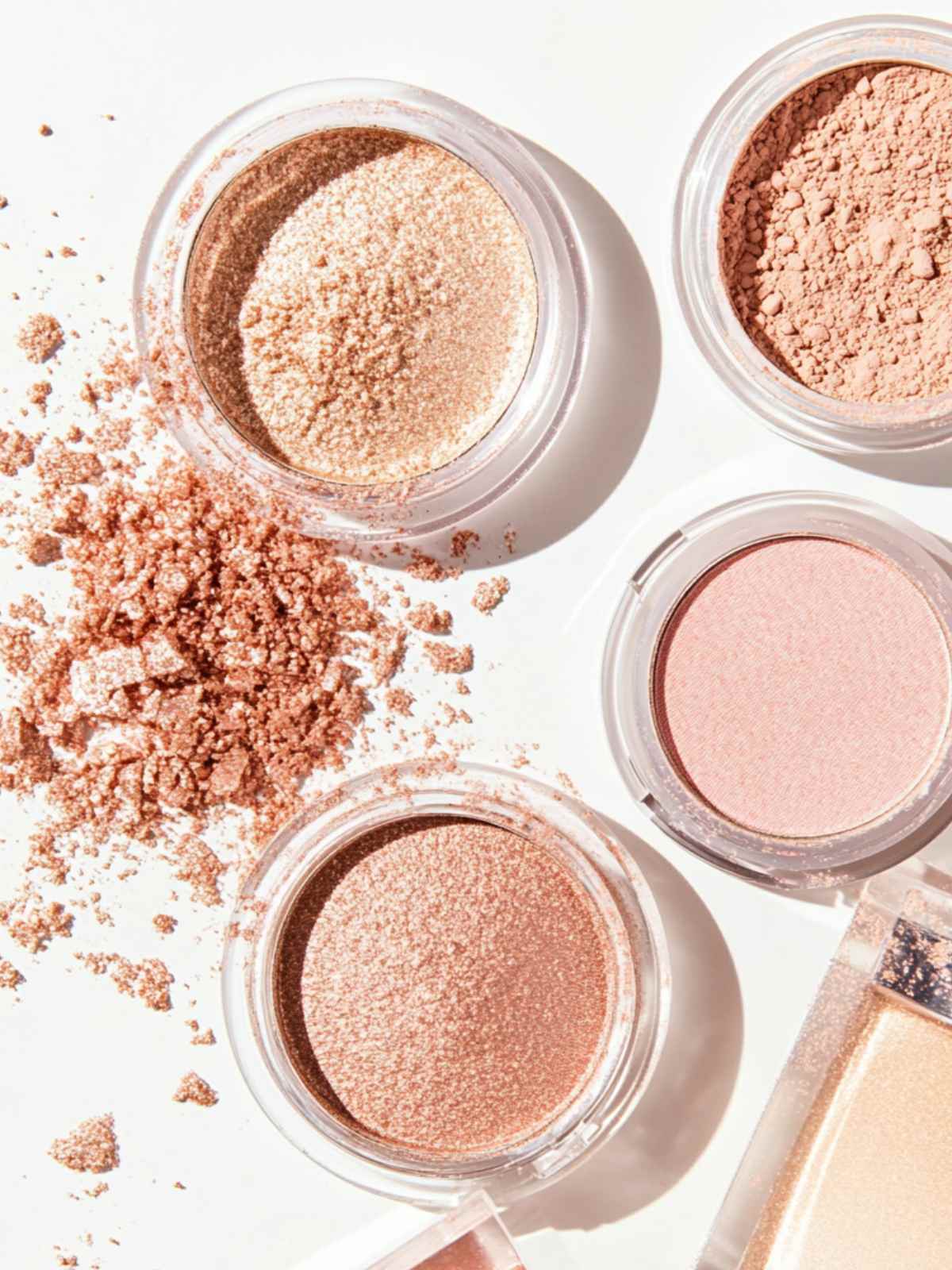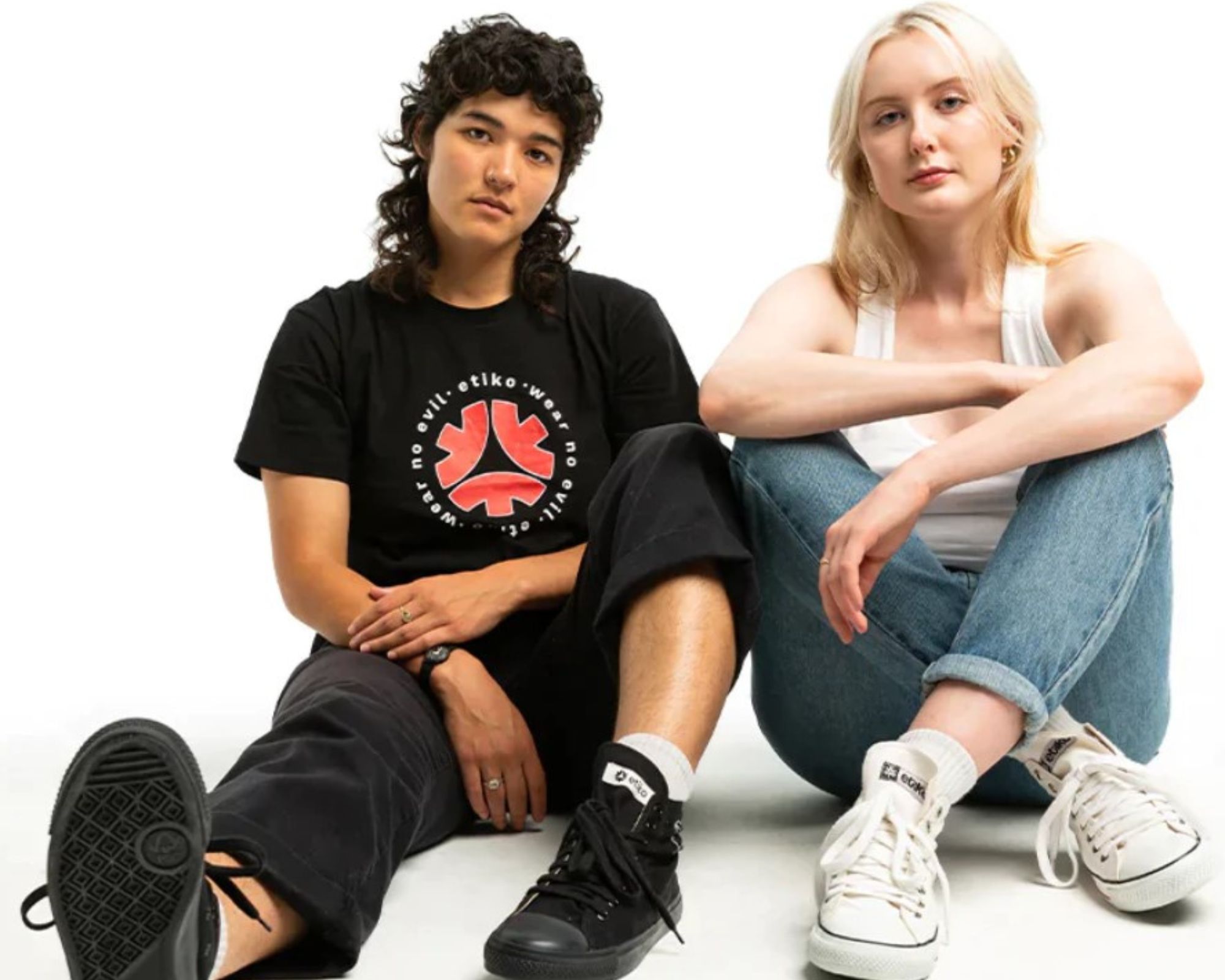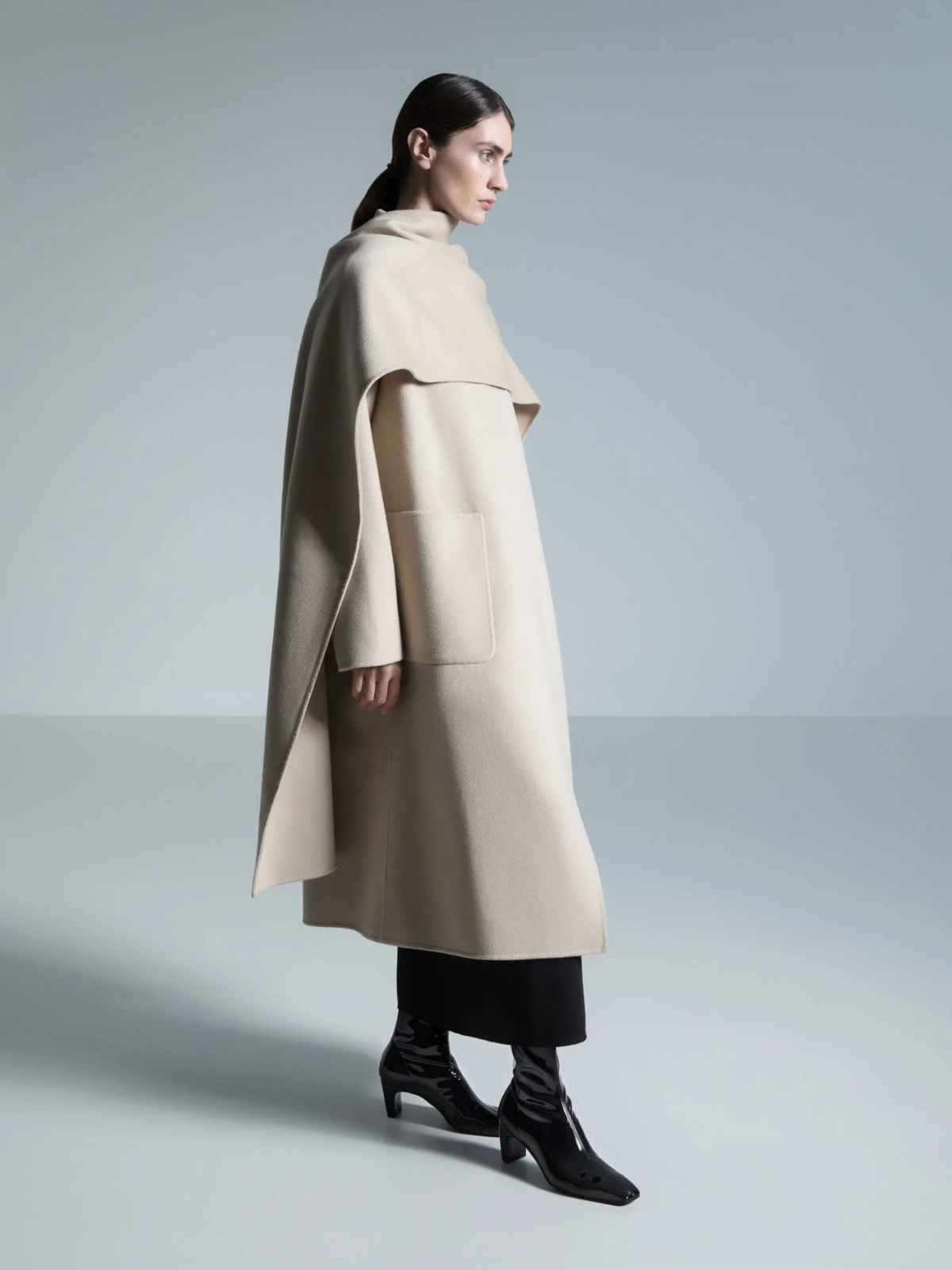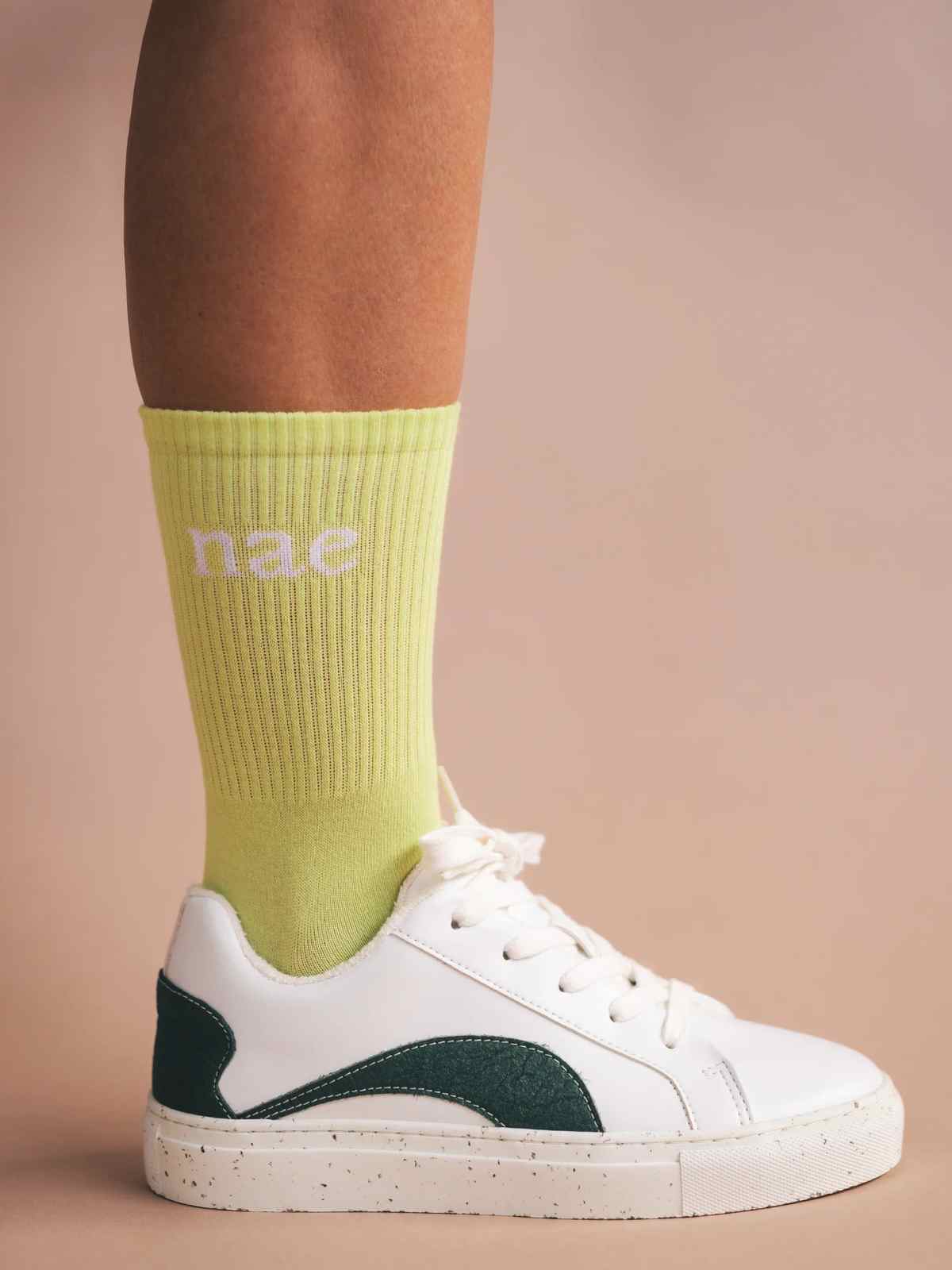This is a sponsored article contributed by a brand that was independently assessed by our rigorous ratings system. We’re proud to only collaborate with “Good” and “Great” rated brands. Learn more.
Since 2005, Australian Fairtrade certified clothing brand Etiko has positioned itself as a leader in conscious fashion. Now they’re changing their messaging and declaring they’re not using the label “sustainable” any more. Founder and director Nick Savaidis explains why.
A crucial shift in mindset
After almost two decades in the ethical fashion game, I’ve had enough. This year, the team at Etiko have all agreed that we need to do things differently. And it begins with ditching the word sustainable.
We need to do things differently. And it begins with ditching the word sustainable.
Sustainability has been a major focus for Etiko since we launched. We’ve always aimed to create products that cause minimal environmental harm—from manufacturing to post-consumer life—while also fairly paying and treating the workers in our supply chains.
But now, we’re changing our mindset. Here’s why.
The problem with sustainability
Manufacturing anything has an environmental impact. It could be solar panels, electric cars, reusable water bottles, or your clothing—an impact is made regardless of sustainability goals. And in a world with limited resources, and in a society that constantly consumes resources faster than they can be replaced, we don’t think “sustainable” is good enough.
It’s true that more sustainably-made products offer a much better alternative for essential purchases. But that’s the key word: essential. And not everything we buy is essential.
Plus, we believe that the word “sustainable” has become tarnished by greenwashing over the years, ultimately diluting the value of the message.
Take a walk through a shopping mall or browse some online stores and you’ll find blatant examples of greenwashing. Plenty of big brands label themselves or a range of their products as sustainable when they do very little to minimise their environmental impact. Clothing companies are producing weekly fast fashion made from polyester that use the term sustainable—there’s nothing sustainable about what they’re doing. So, we’ve decided not to call ourselves a sustainable brand anymore.
Facing the facts
The production of Etiko clothing and footwear has an environmental impact. We do our absolute best to mitigate that impact by choosing organically-grown, biodegradable materials and packaging them minimally. But manufacturing is neither a sustainable process nor regenerative. And considering the current state of our planet, regeneration should be the goal of our global community. Sustainability is no longer good enough.
That’s why we’re ditching the word sustainable in 2023 and choosing to instead call ourselves a responsible brand with regenerative goals. And, we encourage customers to take a similar mindset when making any purchases this year.
So, what does it mean to be responsible?
For us as a brand (and hopefully for the individuals reading this article), being responsible means understanding that choices have consequences—many of which go unseen—and taking personal accountability for those choices and their consequences.
Being responsible also means understanding that resources are limited and we should aim to protect and regenerate those resources.
Responsibility also means going beyond the bare minimum of what’s expected of you. For us, that means contributing to regenerating the resources our company uses, a renewed commitment to communicating the pros and cons of ethical fashion and continuing to invest in better solutions and outcomes while giving back to the communities we work and sell in.
Here are some examples of how we do that.
- We align ourselves with certification schemes that are rigorously audited: Fairtrade, GOTS, and Social Traders (a certification scheme for social enterprises).
- We carefully consider the materials we use. Our entire product range is vegan and we only use organically grown textiles. Our shoes are made with natural rubber instead of petroleum-derived rubber. We are almost plastic-free throughout our entire company. And we take back our customer’s old Etiko clothing and footwear for Australian-based recycling.
- We offset our carbon emissions through a social enterprise called With One Seed. With One Seed subsidises farmers in East Timor and tracks the trees they plant on a live map.
- We work closely with our suppliers and certification partners to ensure fair pay and conditions for workers throughout our supply chain.
- We also offer a tipping service for our customers to tip the people who made their garments directly.
- We donate a portion of our profits from select merchandise to charities in Australia and the countries involved in our supply chain (like our Less Plastic More Love t-shirt, which supports plastic collectors in India).
- And, we regularly communicate about our work and the fashion industry, and campaign for transparency within our industry.
What does all this mean for the future of Etiko?
By focusing on responsibility and regeneration, we can refocus how we work and what we can achieve in the immediate future.
In the past, we focused on circularity, which inspired some great changes for our brand, including the introduction of a footwear and clothing take-back program.
And now, our new focus will impact the materials and products we choose to use and how they’re offset or regenerated. We’ll also be reassessing the types of not-for-profits we choose to work with and fundraise for, the activism we engage in, and the intent of our communication with our customers and the changes we hope to inspire in them.
Basically, we want to create more radical change now and shake up the fashion world—separating the haves from the have-nots because we’ve had enough of greenwashing. Haven’t you?

